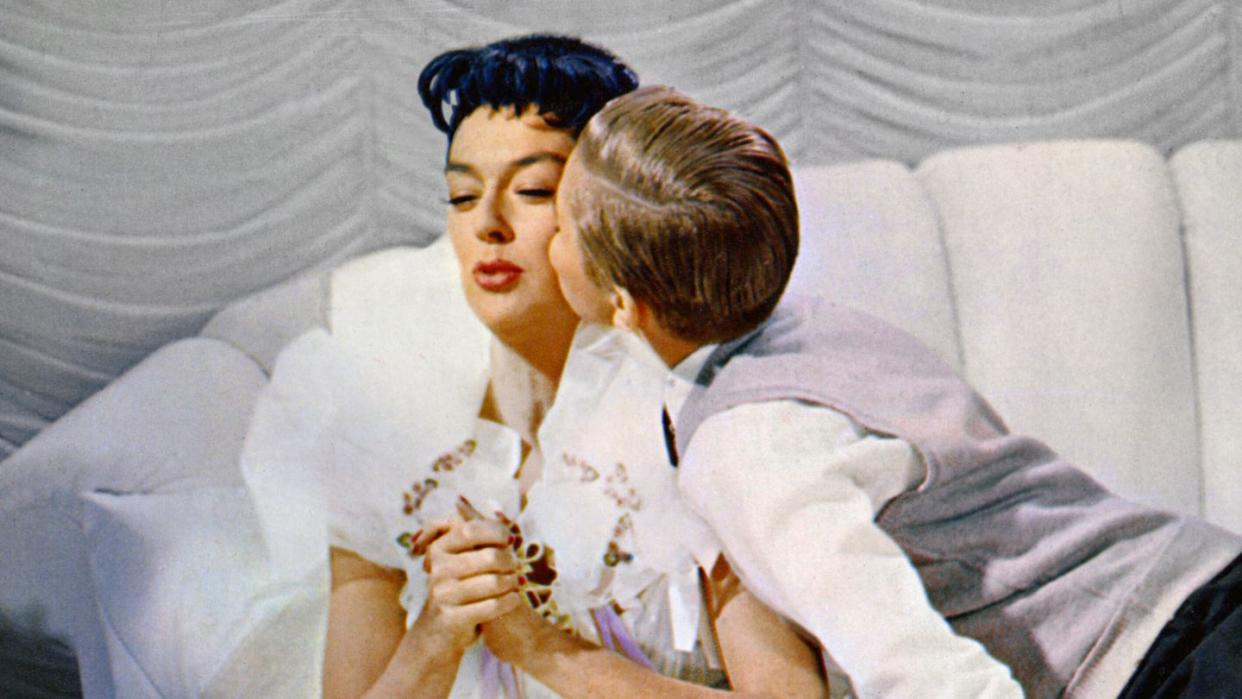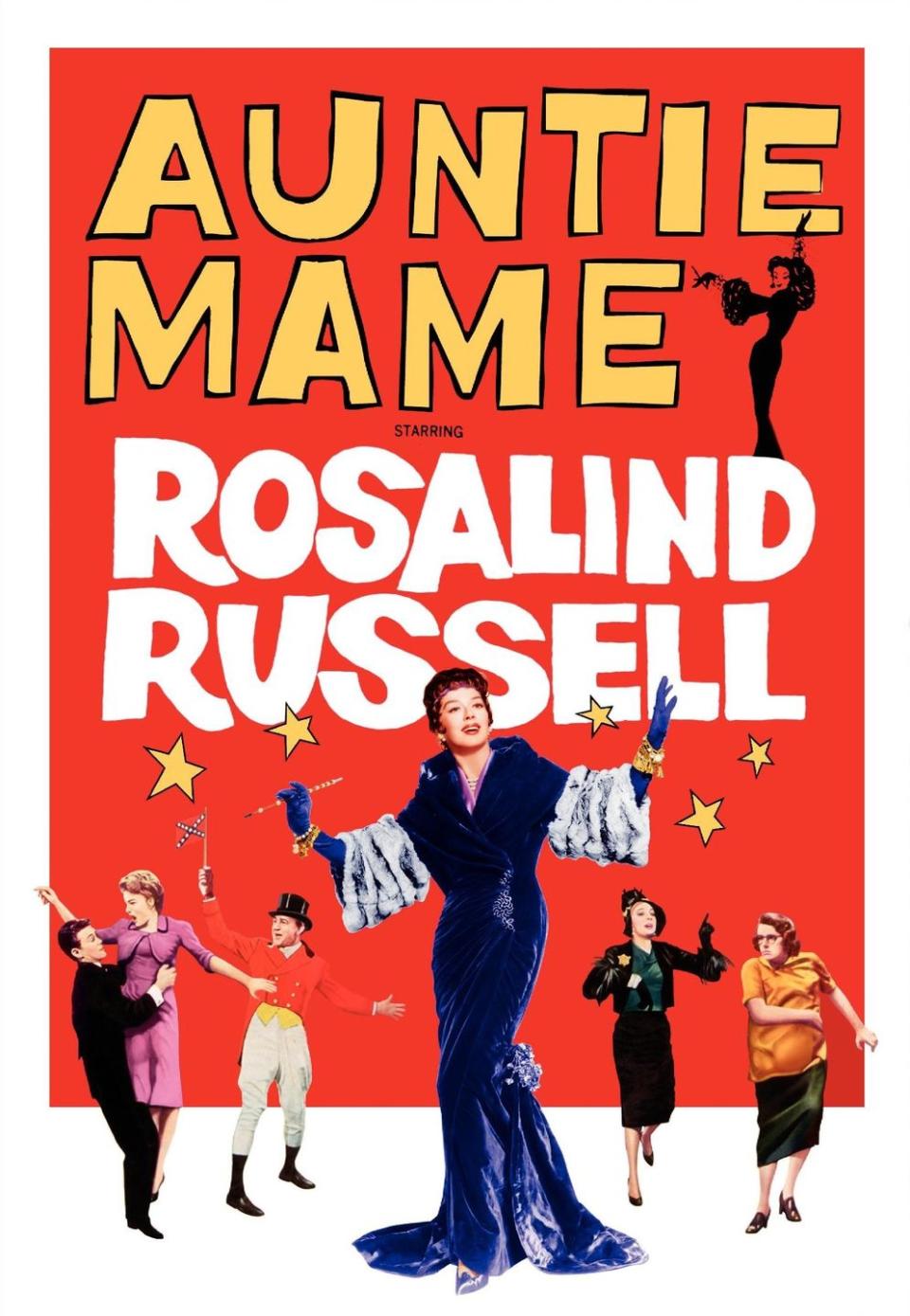Auntie Mame Taught Us That Life Is Still a Banquet

When I was 10 my mother brought home a video cassette of Auntie Mame from the New York Public Library. I didn’t know why she got it, but I did know that she got it right. Based on a novel by Patrick Dennis (the pen name of Edward Everett Tanner III), the film told the story of an orphan boy called Patrick Dennis who goes to live on Beekman Place with his glamorous Auntie Mame. It taught me exactly what I needed to learn, exactly when I needed to learn it. “Live! That’s the message!” Mame insists, with a twist of her gilt cigarette holder. “Life is a banquet, and most poor suckers are starving to death!” I’ve feasted on that philosophy for the past three decades.
Today Jan Handzlik, who played young Patrick, is a successful trial lawyer in Los Angeles, but in 1956 he was a nine-year-old actor living with his single mother, an operatic contralto, in Weehawken, New Jersey. Unexpectedly, life imitated art. Handzlik was chosen from hundreds of boys to play opposite Rosalind Russell in the title role—first for a year-and-a-half run on Broadway, then for the movie, which earned five Oscar nominations, including a best actress nod for Russell. “She took me under her wing,” Handzlik says of Russell, “almost like a second mother.” She installed him in the dressing room right next to hers, and when she heard about his long nightly commute to New Jersey, she arranged for a police officer to escort him all the way home.

While Handzlik can still quote quippy lines from the script—“Stirred, not shaken. Bruises the gin,” he says, remembering the way Auntie Mame taught Patrick to make a martini—a deeper lesson continues to resonate with him more than 65 years later. “The message I take away from it today is the same as it was then,” he says. “You accept yourself, but you also accept others for who they are, and you see a goodness and a worth in everyone.”
Beyond her cigarette holder and martini, Auntie Mame is, above all, inclusion and compassion incarnate—qualities that are in short supply in today’s increasingly intolerant and insular world. “That might make her sad, in some ways,” Handzlik says, “because we shouldn’t have to keep learning these lessons over and over again.” Thankfully, we have many Auntie Mames to remind us of them, both on and off the screen. For me, as for Handzlik, they were often actresses of a certain age, like Elaine Stritch, whom I got to know when I was starting out as a writer and who played the part onstage and lived life with Mame-ish courage, humor, and style.
A few weeks ago I was having lunch with my mother, and I asked her why she got me that video from the library in the first place. She stared at me for a second, then shrugged. “I guess,” she said, as she took a thoughtful puff of her cigarette, “it was because the little boy was called Patrick, just like you.”
This story appears in the February 2024 issue of Town & Country. SUBSCRIBE NOW
You Might Also Like
